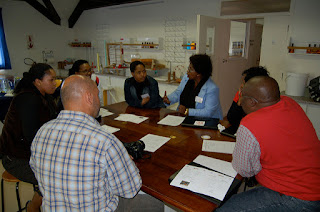Revised: December 2018
By Sarah Owens and Michael Livingston
[Originally posted under the title, "MWHITF: Walking the Collaboration Talk."]
But, with the co-chairs so focused as they seem to be on logistical concerns (meeting places, types, coverage, communications, etc.), it's hard to imagine how they are going to get the task force to focus on all they've said they will in the 16 hours they have left together, especially as there appears to be no plan for how the task force will reach its goals, which, by the way, they have yet to agree on.
 |
| The Multi-Focused Task Force |
Also last week, the Mayor delivered her last "State of the City" speech to a large audience. At the very end, she announced the formation of the task force "[a]s proof that we are the Collaboration Capitol [sic]."
This is not the first time it has been suggested that the formation of the task force is, in and of itself, something to celebrate.
 | |
| Salt Lake City Apartments |
In fact, the Salt Lake City program succeeded because Salt Lake City providers had to decide to walk the collaboration talk, change the way they were doing things, starting by attending "process-improvement, results-oriented boot camps" developed by the 100K Homes Campaign and the Rapid Results Institute at the behest of HUD, the VA, the National League of Cities and other big-deal agencies.
Over three days, we [shelter and housing authority reps, reps from the VA and the Dept. of Workforce Services and others] engaged in a series of exercises that helped us challenge our systems, agencies, and processes. We set goals and agreements as a community. The result was a near-complete overhaul of how we work together...
Although it made sense to both the homeless system and the VA that the organizations should come together, our philosophies and service delivery mechanisms were drastically different. Before the boot camp we couldn’t fathom how to work cohesively enough to make a significant impact on the population.Sound familiar?
During the boot camp, the nine attendees from Salt Lake City identified and eliminated every administrative and systemic barrier we could think of. We challenged each other, our beliefs, and our practices.
In three days, we were able to deconstruct every process and
systemic barrier to ensure our resources could be delivered as efficiently as possible. After the boot camp, we enlisted more support from street outreach teams, local government, funding agencies, and anyone else we could get to join in.
A Civilian Boot Camp
None of the process improvements we made were difficult on their own...we worked on the practical, nuts-and-bolts bottlenecks in our systems...We pushed ourselves to rise above our existing structures and habit of identifying why we couldn’t do things, and figure out how to make things happen.
 |
| From the West Coast Mayors' letter to Congress [https://www.portlandoregon.gov/mayor/article/567314] |
On the same day that Mayor Peterson gave her speech, the West Coast Alliance of Mayors sent a letter to Congress, asking the leadership to prioritize appropriations for rental assistance programs and "significant increases in funding for affordable housing development", in order to help those mayors address the "crisis of homelessness and housing affordability affecting our cities."
The mayors of Salem and Keizer were not among the signatories.

No comments:
Post a Comment